Sudan's Economic & Geopolitical History Part IV: The Fall of Omar Al-Bashir, The Female-led Sudanese Revolution, & the Current Sudanese Civil War!
This is the story of how a barely literate camel trader from Chad committed a genocide, amassed wealth, and waged a civil war to become Sudan's head of state.

Read Part I for insights on Sudan’s early history, covering the pre-Colonial era, the impact of Colonialism, Sudanese independence, South Sudan’s first rebellion, & Sudan’s 1st military coup.
In Part II, the journey continues with the end of the 1st Southern Rebellion, Sudan’s role in the Arab-Israeli conflict, the discovery of oil, the onset of the 2nd South Sudanese Rebellion, and Omar-Al Bashir’s rise to power via military coup.
Part III delves into Al-Bashir’s brief hosting al-Qaeda, the end of the 2nd South Sudanese Rebellion, the Darfur Genocide, Sudan’s loss of 75% of its oil following South Sudan’s independence, and the ongoing rebel movements in the disputed territories between Sudan & South Sudan (Blue Nile, Abyei, & South Kordofan including the Nuba Mountains).
_________________________________________________
After decades of conflict, a “two-state solution” emerged: Sudan & South Sudan. However, peace was elusive as both nations immediately faced issues. Sudan received Blue Nile & South Kordofan, where South Sudan supports rebel groups there. However, Abyei remains a disputed region.
Tensions escalated when Al-Bashir increased pipeline transit fees on South Sudan, leading South Sudanese President, Salva Kiir, to shut down the oil pipeline, an economically suicidal move to both countries.
Under pressure from the African Union and the West, both Sudans signed a deal in April 2013 to establish a fair transit fee formula.
Despite the agreement, transit fees generated far less revenue than selling oil outright, and Sudan's foreign exchange (FX) plummeted. At its peak in 2010, Sudan earned $10 billion in FX from oil sales. After South Sudan's secession, this revenue dropped to around 20% of that amount, and later plummeted to 3-4% after 2016. To maintain reserves, Al-Bashir reduced fuel & food subsidies, triggering violent protests in the capital.
Al-Bashir ordered his government to quash the protests, killing 200. Meanwhile, South Sudan descended into civil war by December 2013.
Facing a dire situation, Al-Bashir sought new ways to generate foreign currency and “coup proof” his regime. One of his strategies was selling weapons. Among his limited successes in import-substitution industrialization was small-scale arms manufacturing. Al-Bashir sold weapons to rebels during the Libyan civil war as revenge for Gaddafi's support of non-Arab Darfurians in the 2000s. Al-Bashir expanded these sales to conflicts in South Sudan, Mali, Syria, and others.
Also, in 2013, Al-Bashir reorganized the Janjaweed into the "Rapid Support Forces" (RSF), as a private mercenary group to generate foreign exchange and protect himself from potential coups.
The Rizeigat, Murahaleen, Janjaweed, The RSF
The RSF, led by General Mohamed Hamdan, known as "Hemedti," evolved into a lucrative business empire. Hemedti, a Chadian Baggara Arab, former camel trader, and Janjaweed Genocidaire, transformed the RSF into a force that controls oil refineries, smuggles gold mines in Jebel Amir, Darfur, patrols borders, and provides mercenaries for conflicts. The RSF sells gold to Dubai under Hemedti’s family firm Al-Gunade, has a joint venture with the Russian Wagner Group called Meroe Gold, and also sells gold to China & India. Al-Gunade also does construction, limousine rentals, and hires unemployed Sudanese youth. Since Sudan lost 75% of its oil, gold now became Sudan’s billion dollar FX earner.
He paid the RSF to crush Darfurian rebels again in 2013-2015. Hemedti used his RSF to kill hundreds of Darfurians and displace hundreds of thousands of them.
Hemedti also deployed his RSF to fight in the Yemen Civil War for Saudi Arabia & UAE against the Iranian-backed Houthis, and in the Second Libyan Civil War for Khalifa Haftar against the Libyan provisional government.
Sudan/South Sudan Disputed Territories: Al-Bashir & the RSF were bombing the Nuba Mountains in South Kordofan, home to the SPLM-North rebels, who Al-Bashir sought to crush. Hemedti controls and exports South Kordofan gold as well.
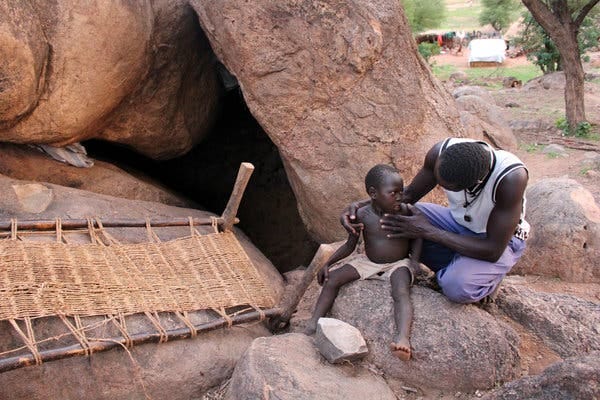
In 2014, Omar al-Bashir’s regime was on the verge of collapse and he was losing allies. He called for “national dialogue” which included peace and political reform. This was a pretense to win the election which he won with 95% of the vote. (With election irregularities).
Even after winning, Sudan was broke, and Al-Bashir lacked the FX to prop the Sudanese pound, allowing currency devaluation. In the meantime, he tried to improve Sudan's global standing.
Sudan-America: By 2017, Trump lifted some sanctions on Sudan, including the trade embargo and the asset freeze on Sudan’s U.S. denominated assets, though it was still called a “State Sponsor of Terror”. To remove the “Terrorism Sponsor” label, Sudan allowed human rights groups to provide humanitarian aid to Darfur and South Kordofan, cease bombings in the Nuba Mountains under the pretext of killing rebels, cooperate with the CIA in counterterrorism, and end arms purchases from North Korea.
Sudan-Türkiye: In 2018, to secure Turkish funds, Al-Bashir granted a 99 year lease to Turkey on Suakin Island. President Erdogan of Turkey plans to rebuild the neglected Suakin as a port city & tourism hotspot, reminiscent of its days when Suakin was owned by the Ottoman Turks.
Sudan-EU: Al-Bashir assisted Europe curbing Sudanese migration to Europe, and in return the European Union has extended financial aid ($130M). Al-Bashir has mainly used these funds for military spending.
Sudan-Arab States: Failed Green Revolution 2.0
Sudan, with fertile land nourished by the White and Blue Nile, boasts 200 million acres of arable land—equivalent to the rest of the Arab world combined. However, it suffers from poor farming productivity.
Remember, the failed & mismanaged Green Revolution that Al-Nimeiry did in part 2? Instead of following Al-Nimeiry's strategy, which relied on borrowing from Gulf States & state-driven farming initiatives, Al-Bashir opted to lease Sudanese farmland to Arab states, allowing them to develop it themselves. In 2013, he introduced the National Investment Encouragement Act to attract foreign investment.
By 2016, Bashir had signed a $10 billion deal with Saudi Arabia, granting them a 99-year lease on Sudanese farmland. Sudan also leased land to the UAE, Qatar, Jordan, Syria, Pakistan, Yemen, Lebanon, and Bahrain. Bahrain's lease is so large it's the size of the small country. These nations want Sudan’s land for food security to avoid another Arab Spring.
The land was leased at below-market rates ($0.50 per acre) on 99-year terms, tax-free, and without requirements to employ Sudanese workers. The government never fully explained the strategy to the public, leading to widespread anger among Sudanese people who felt their sovereignty was being sold to other Arab nations.
Frankly, only 5M acres were purchased by foreigners (2.5%). But even when foreigners purchase the land you have overpumped local aquifers, causing water shortages in nearby villages, and while exporting wheat, they were turning previously arable land into desert, pushing people to the brink of starvation.
To make matters worse, in 2018, the collapse of Sudan’s state-owned refinery in Khartoum compelled many agribusinesses to rely on expensive imported black market fuel.
All of Al-Bashir’s strategies failed to generate sustainable foreign exchange, even with capital controls. By 2018, Sudan was facing severe currency shortages. The country's reserves barely covered three days of imports, as shown in the "Total Reserves in Months of Imports" metric. Ideally, countries like Sudan that import food, fuel, and manufacturing goods should have more than six months of coverage, with anything under three months considered dire.
So he cut subsidies for bread and fuel and stopped propping up the Sudanese pound with foreign currency sales.
The Sudanese Revolution (December 2018-April 2019)
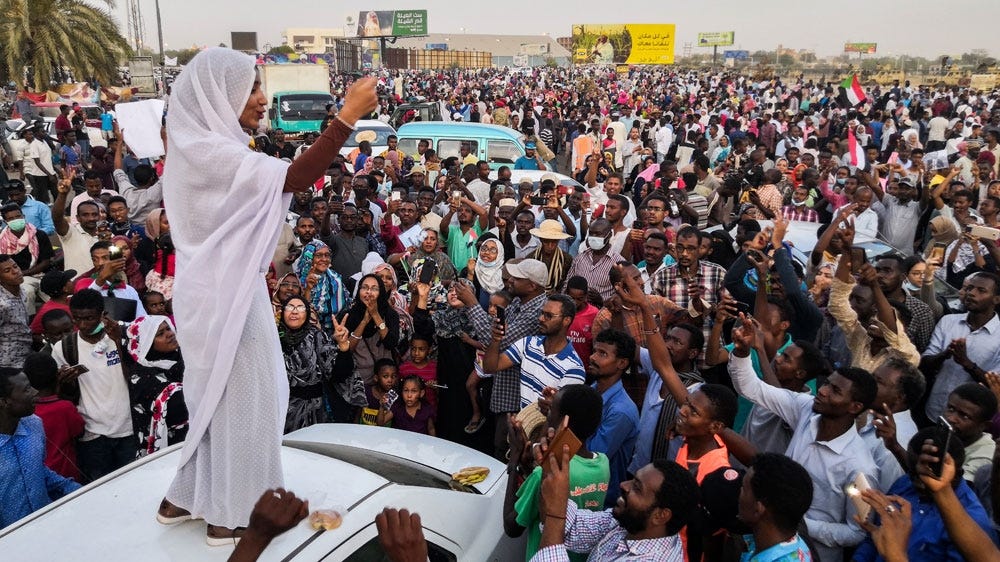
The result was 70% inflation. The Sudanese people found this unacceptable since 75% of the restricted government budget went to military and security forces like the RSF and SAF, while only 7% was allocated to healthcare and 3% to education.
People started to protest in December 2018 and Bashir used his military, the RSF, and his “morality police” to killing and detaining 1000s of people. The Sudanese pound’s devaluation was so tremendous that Sudan demoted from “lower-middle income” to “low income” in 2019.
Hundreds of civic groups, women’s associations, community groups, unions, academics, communists, and professional & political organizations continued to protest and united to form the Forces of Freedom and Change, a committee dedicated to non-violent resistance of Al-Bashir. The situation grew so dire that Al-Bashir couldn’t even attend Friday Mosque without getting lambasted.
Recognizing Al-Bashir's loss of political legitimacy amid daily mass protests, in April 2019, the RSF under Hemedti and the Sudanese Army led by Al-Burhan overthrew him in the Sudanese Revolution.
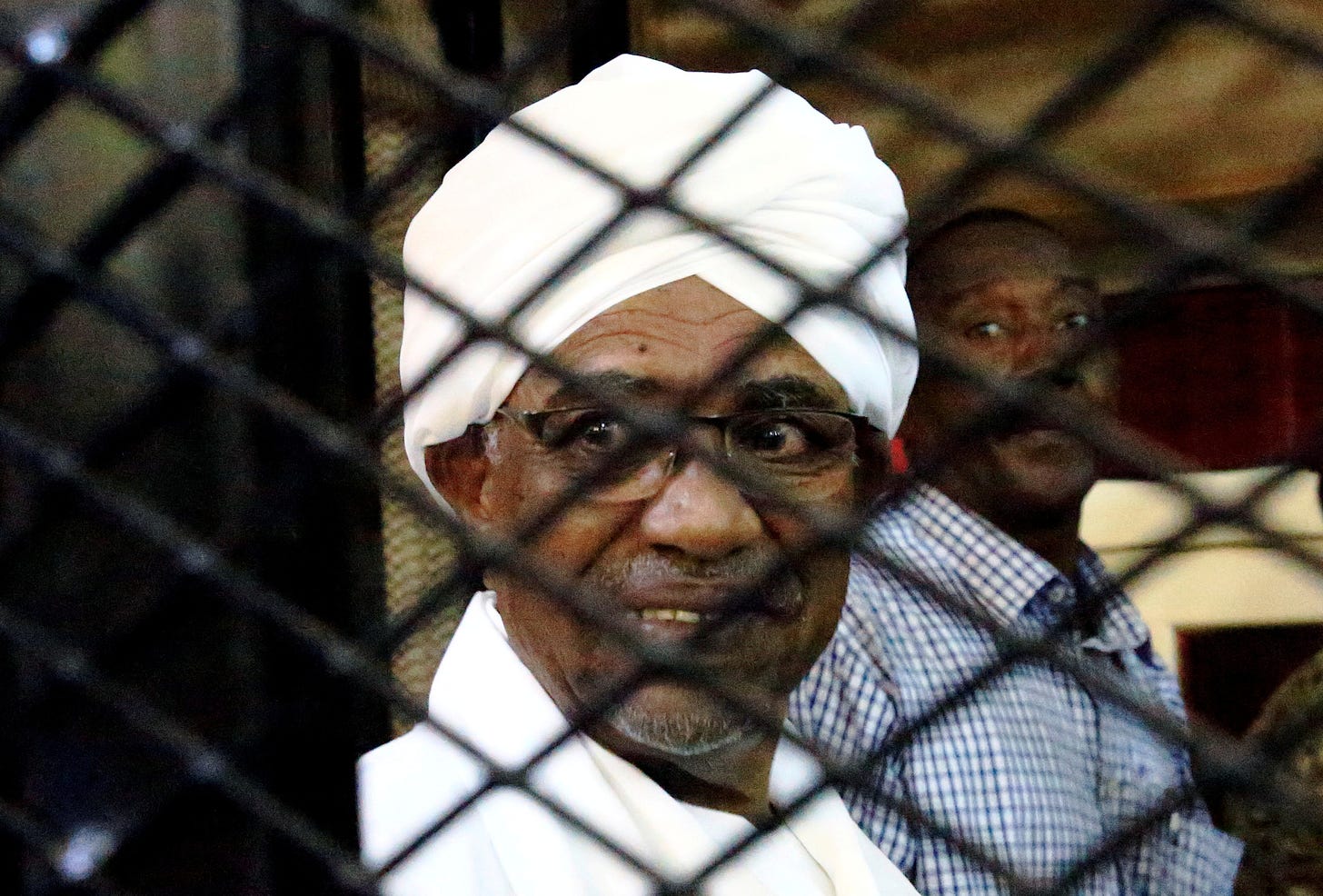
The Transitional Government (2019-Present)
The public was outraged that Al-Bashir’s military henchmen seized power. Viewing it as “revolution hijacking”, the people continued to protest for democracy.
In June 2019, Hemedti’s RSF killed hundreds of protestors in what is now dubbed as the Khartoum Massacre.
In response, the U.S. under Donald Trump, the UK, the African Union, the UAE, and Saudi Arabia declared that they would not acknowledge Sudan’s military government.
Under diplomatic pressure, Al-Burhan & Hemedti, leaders of the Transitional military council, signed a power sharing agreement with the civilian oppositional coalition, Forces for Freedom and Change, in August 2019. The agreement established a transitional government until elections were held in 2022. Military Lieutenant Al- Burhan served as head of state, Hemedti was the deputy head of the military council and Abdalla Hamdok, a Sudanese economist who worked at the UN, was Transitional Prime Minister representing the protestors.
Hamdok focused on economic recovery and removing Sudan from the U.S. Terrorism Sponsor List, which included only Sudan, Iran, North Korea, and Syria. The transitional government did the following:
Surrendered Al-Bashir to ICC for trial in February 2020
Signed peace with Darfurian, South Kordofan, & Blue Nile rebels in Aug 2020
Compensated $335M in Oct 2020 to victims for alleged support of Al-Qaeda in the 1998 Kenya & Tanzania embassy bombing
Pledged to acknowledge Israel
In December 2020, Trump held his end of the bargain and removed Sudan from the blacklist.
Sudan received access to the World Bank & IMF again and was going to receive debt relief from them.
In June 2021, Sudan joined Morocco, UAE & Bahrain in recognizing Israel in the Abraham Accords.
Ethiopia-Sudan Issues: As Hamdok was trying to improve his nation’s finances. The Tigray-Ethiopia war spilled into the Sudan-Ethiopia border town, Al Fashaga in December 2020. Al-Burhan had a 2 year skirmish with Ethiopia in this region. Ethiopians killed Sudanese which led to Sudan shelling, and farmer displacement on both sides. The conflict ended in December 2022.
Unfortunately, Hamdok lost legitimacy among many Sudanese for recognizing Israel, which they view as an apartheid state. In October 2021, a month before elections, Al-Burhan and Hemedti capitalized on the discontent and ousted Hamdok, causing protests again.
This coup led to the suspension of debt relief from Biden, the World Bank, and the IMF. Though Hamdok was briefly reinstated, he resigned in January 2022. Despite this, international pressure from the UN, the EU, the U.S., the UK, Saudi Arabia, the UAE, and the African Union pushed Sudan to commit to elections. In December 2022, Al-Burhan and Hemedti signed an agreement promising a civilian-led government by April 2023.
Al-Burhan agreed to democratic reforms if Hemedti integrated his forces into the national army within two years. Hemedti, preferring a 10-year timeline to protect his business empire and power, resisted. Facing the loss of his influence, in April, Hemedti decided to eliminate Al-Burhan and take control of the government himself. Now there's a war between the RSF vs. the Army
3rd Civil War, Also known as “The Forgotten War” (2023-Present)
150K dead and counting. 2M starving, and 11M displaced —equivalent to the entire population of New York City. Sudan, already hosting nearly 1M South Sudanese refugees from their Civil war, now sees its own people fleeing to South Sudan, Egypt, Eritrea, Syria, Ethiopia, CAR, Chad, and Yemen. Attempts at mediation by America, the African Union and Saudi Arabia have failed. Hospitals, schools, and residential areas have been shelled, with limited access to drinking water and widespread famine.
Unlike previous conflicts focused on non-Arabs in South Sudan or Darfur, this war pits Afro-Arabs against each other and marks the first time Khartoum and major urban centers have experienced such violence.
Ethnic Cleansing in West Sudan (Darfur):
The RSF has seized the Sudanese military outposts in Darfur, West Sudan and is massacring the non Arabs. The RSF is declaring Darfur as “the land of the Arabs” with statements like “No Massalit/Nuba will live here” and “No slaves will live here!”. The RSF has been burning crops and warehouses, creating a man-made famine.
Hemedti has forced Al-Burhan out of Khartoum to port Sudan and is trying to execute a diplomatic charm offensive to other African leaders.
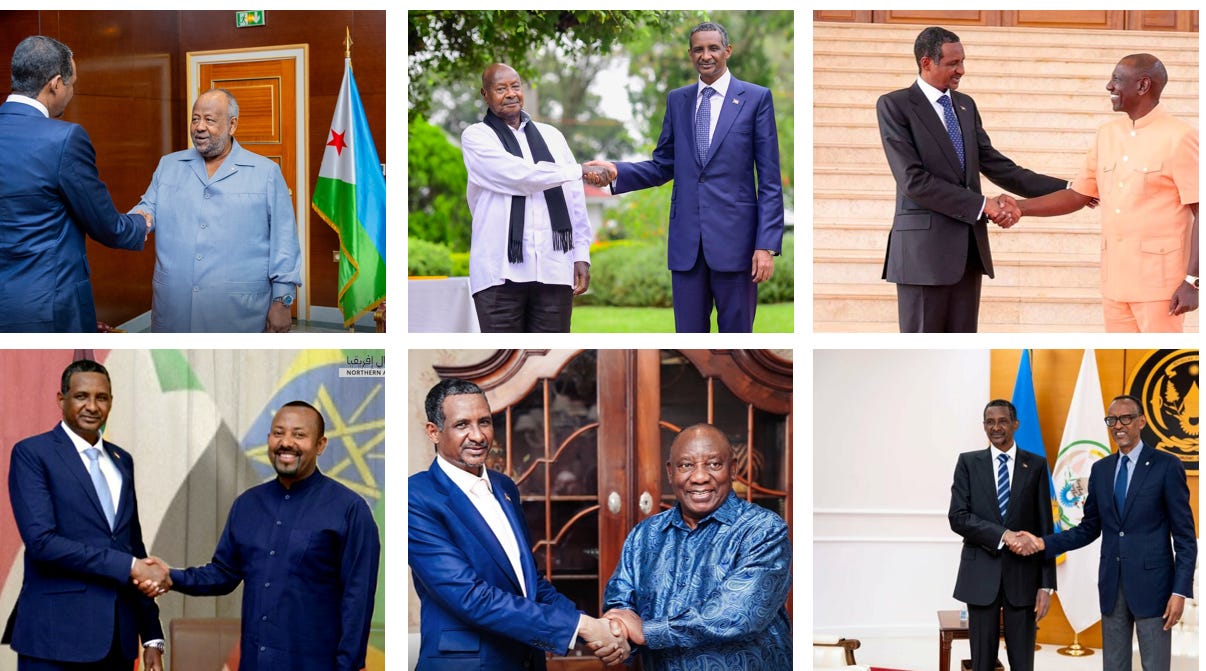
The Sudanese army maintains air superiority, but have been accused of doing indiscriminate airstrikes which have killed civilians.
America has sanctioned both sides. Sudan’s military has used chemical weapons at least two times and used starvation as a weapon of war. Meanwhile, America has officially declared that the RSF/Janjaweed has committed a genocide in Darfur (for the 2nd time).
Other Powers:
UAE’s AD Ports Group and Invictus Investment have a $6B port development deal in Port Sudan as of December 2022. The United Nations and NYT reported that UAE sends weapons to Hemedti via Chad, UAE officials deny involvement in Sudan.
Khalifa Haftar, who functionally controls East Libya, has used Hemedti’s forces in the Libyan Civil War. Returning the favor, he is sending fuel shipments & weapons to Hemedti.
Russia’s Wagner has helped Hemedti. But Putin also wants access to the Port of Sudan. As of April 2024, Russia supports the Sudanese military as the official government.
Meanwhile, Al-Sisi of Egypt and Ayatollah Khamenei of Iran also support Al-Burhan.
Domestically, Sudanese civilian groups are trying to create a coalition led by the former Prime Minister Abdalla Hamdok called Taqaddum. America and UK is trying to empower this civilian government to lead a post war Sudan.
Unfortunately the AU has not been a potent force. The peace talks are happening in Geneva, Switzerland.
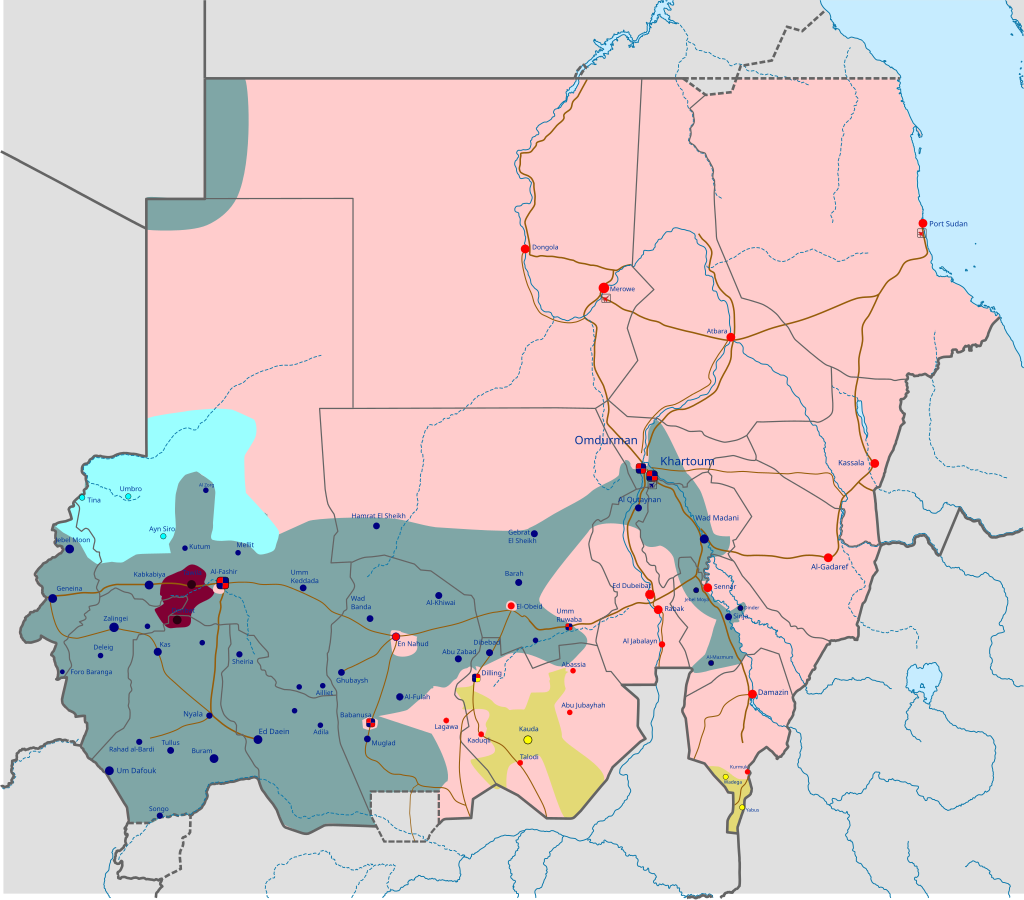
Concluding Thoughts
The story of Sudan is long and vast. The Kerma Kingdom, the oldest known centralized civilization in Sub-Saharan Africa, predates Damot in Ethiopia/Eritrea or Wagadou-Ghana in modern day Mali/Mauritania. Sudan's history includes being a slave reservoir, a conqueror, an enemy, an extension, and a trading partner of Egypt. Like Egypt, Sudan once had pyramids and was predominantly Christian until Islam spread in the 6th century AD. Through trade, slavery, and migration, Sudan gradually became Arabized & Islamized.
Before the Ottoman Turco-Egyptian conquest, Sudan was multiple states like Funj, Darfur, and various southern tribes. African Arabs enslaved non-Arab Africans in the west and south, and later, the British took over from Turkish-Egyptian colonialism and exacerbated divisions between Afro-Arab Sudan and non-Arab Afro-Sudan. After independence, Northern Afro-Arabs committed mass atrocities against non-Arabs in the south and west (Darfur) until the 2010s. Now, internal conflicts among Northern Arabs persist.
Despite its challenges, Sudan has produced talented scientists, engineers, and musicians who often succeed only after leaving the country. For example, Mohamed al Hassan, a Sudanese physicist, became President of The World Academy of Sciences after moving to Europe. Sudan achieved lower-middle-income status in 2007, before many other Sub-Saharan African countries, even under THE TOUGHEST U.S. sanctions, but fell back to low-income status in 2019 due to losing oil.
Sudan's potential is vast, but many questions remain.
Can Sudan avoid the “Libyan permanent stalemate issue”?
Will Darfur, South Kordofan, Blue Nile, or Abyei secede and become the next landlocked African state(s)? I hope not, as landlocked countries like Chad, Burkina Faso, Mali, South Sudan, the Central African Republic, Malawi, Uganda, Afghanistan, Burundi, and Niger are among the world’s poorest.
Who will take over Sudan? Will it be the army under Al-Burhan? Will the RSF under Hemedti? Or will Hamdok, with his push for democracy, rise to power?
Will Sudan’s conflict ever attract global attention?
Note: Sudan's recent history highlights an ironic U.S. policy shift. Under Trump, the U.S. used diplomatic pressure to support Sudan’s transition to democracy after Al-Burhan and Hemedti ousted Omar Al-Bashir, despite committing the Khartoum Massacre. This contrasts with Obama’s response to Egypt, where the U.S. supported Al-Sisi after his coup against the democratically elected Morsi, despite the Rabaa Massacre. Obama condemned the events, briefly suspended aid, but ultimately resumed support.
Why the difference? One theory is institutional learning, with the U.S. State Department trying to avoid past hypocrisy. Another is the lack of international consensus for civilian rule in Egypt, unlike in Sudan, where the EU, UK, AU, UAE, and Saudi Arabia pressured for democracy. Lastly, U.S. principles are often situational. Morsi’s ties to the Muslim Brotherhood clashed with U.S. allies like Israel, the UAE, and Saudi Arabia, making him a liability. Supporting Al-Sisi ensured alignment with U.S. interests, similar to Mubarak, and prioritized stability during the Arab Spring.
Sudan’s limited geopolitical relevance, however, allowed the U.S. to take a more idealistic stance, opposing military dictatorship and supporting democracy.


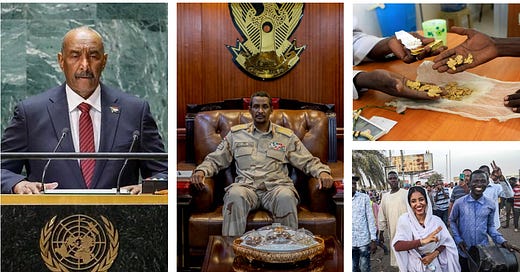


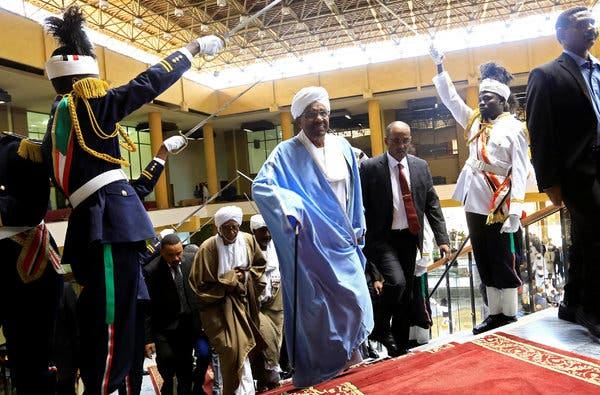
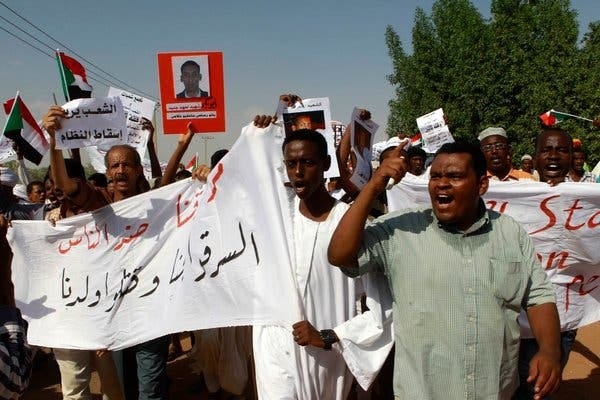
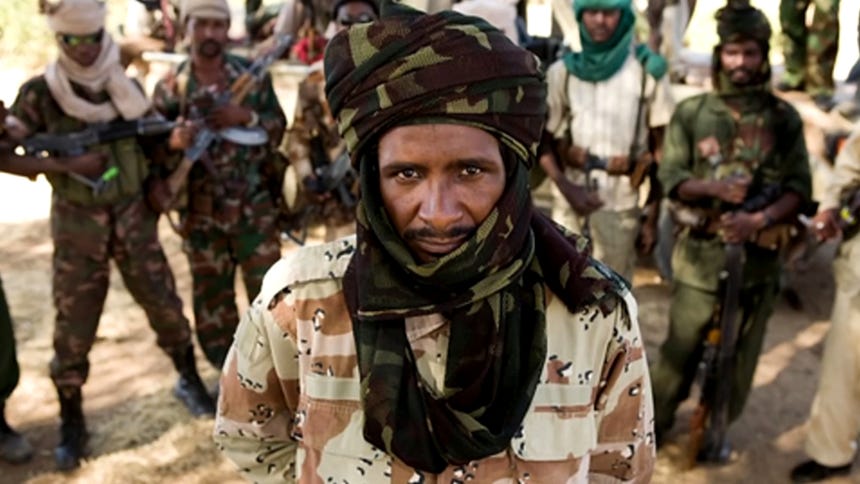
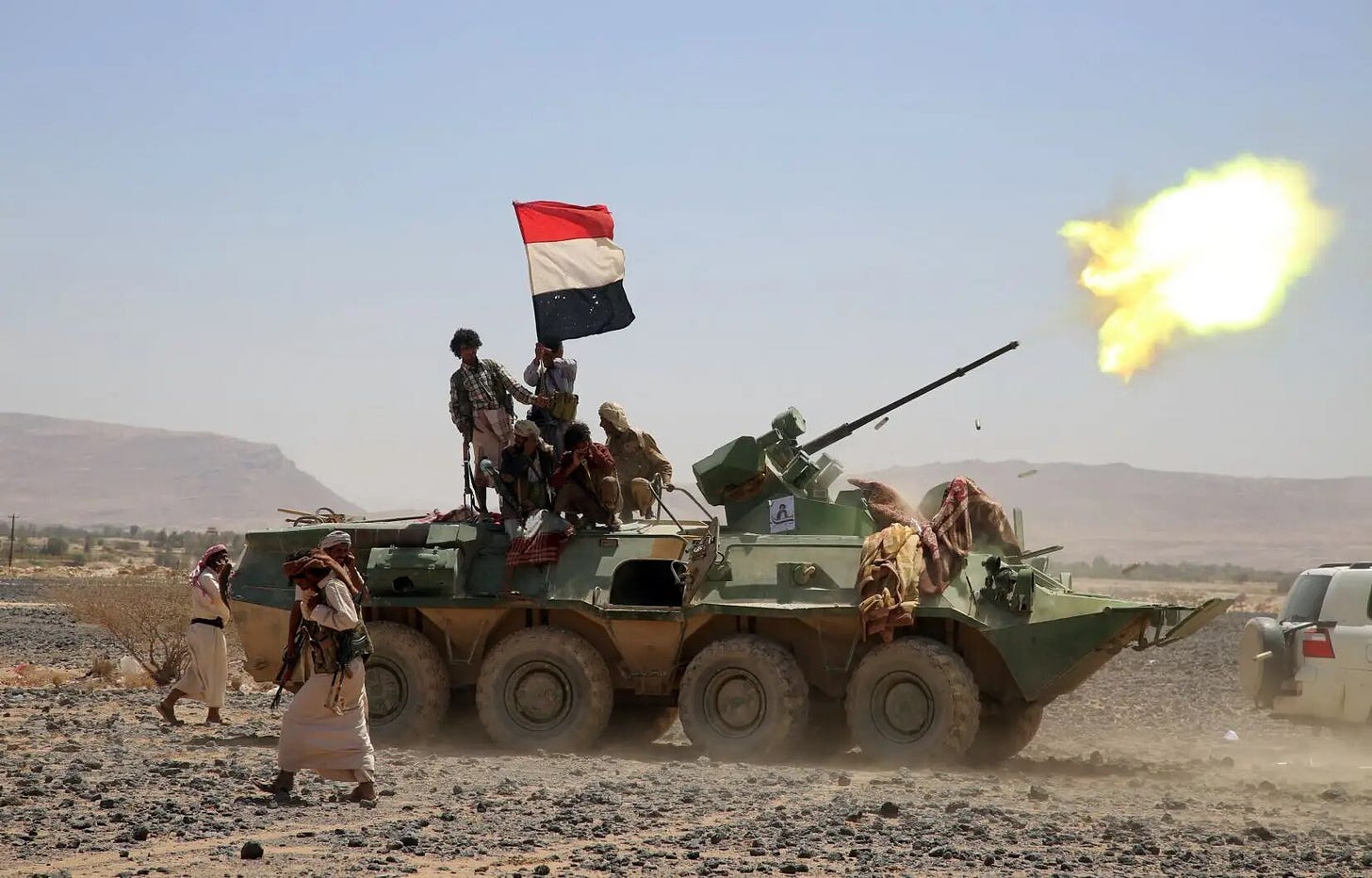
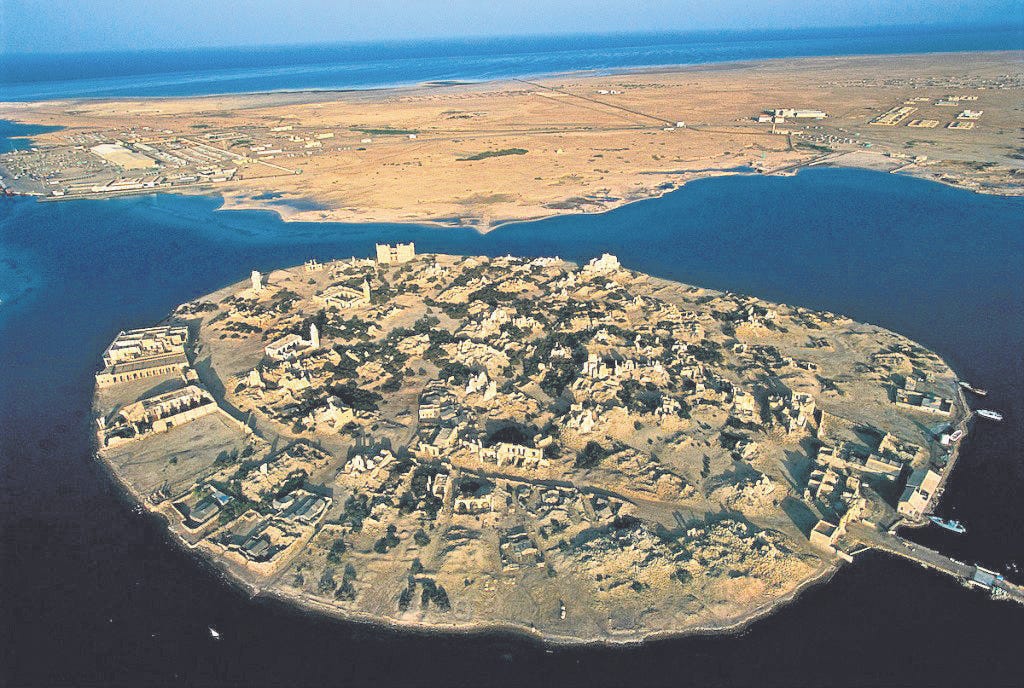
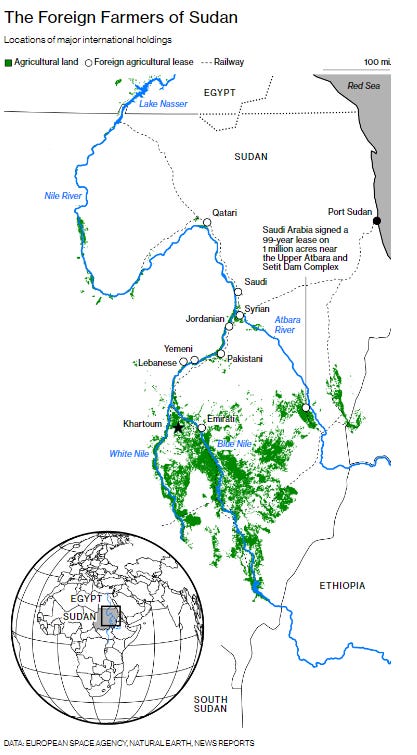
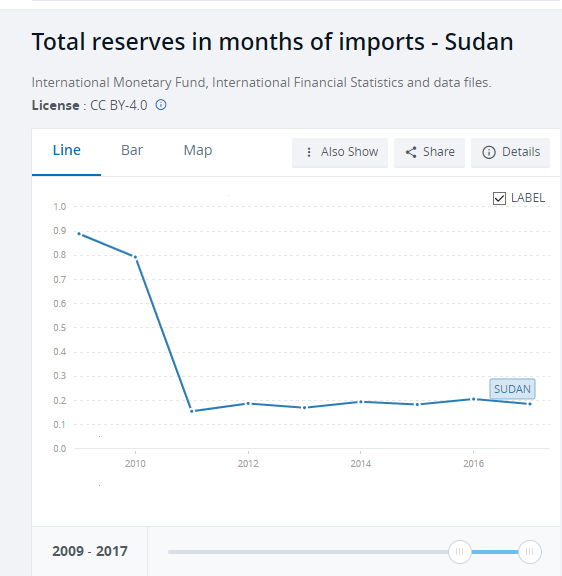
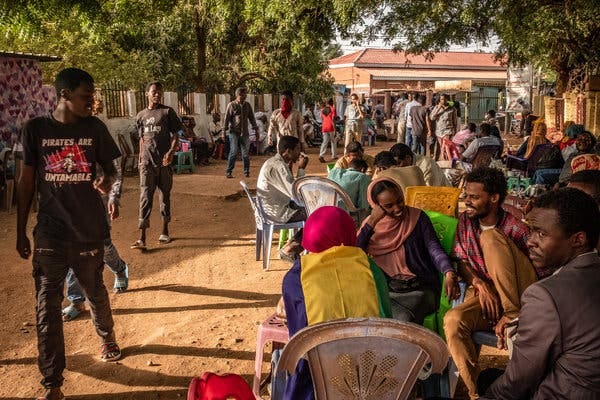
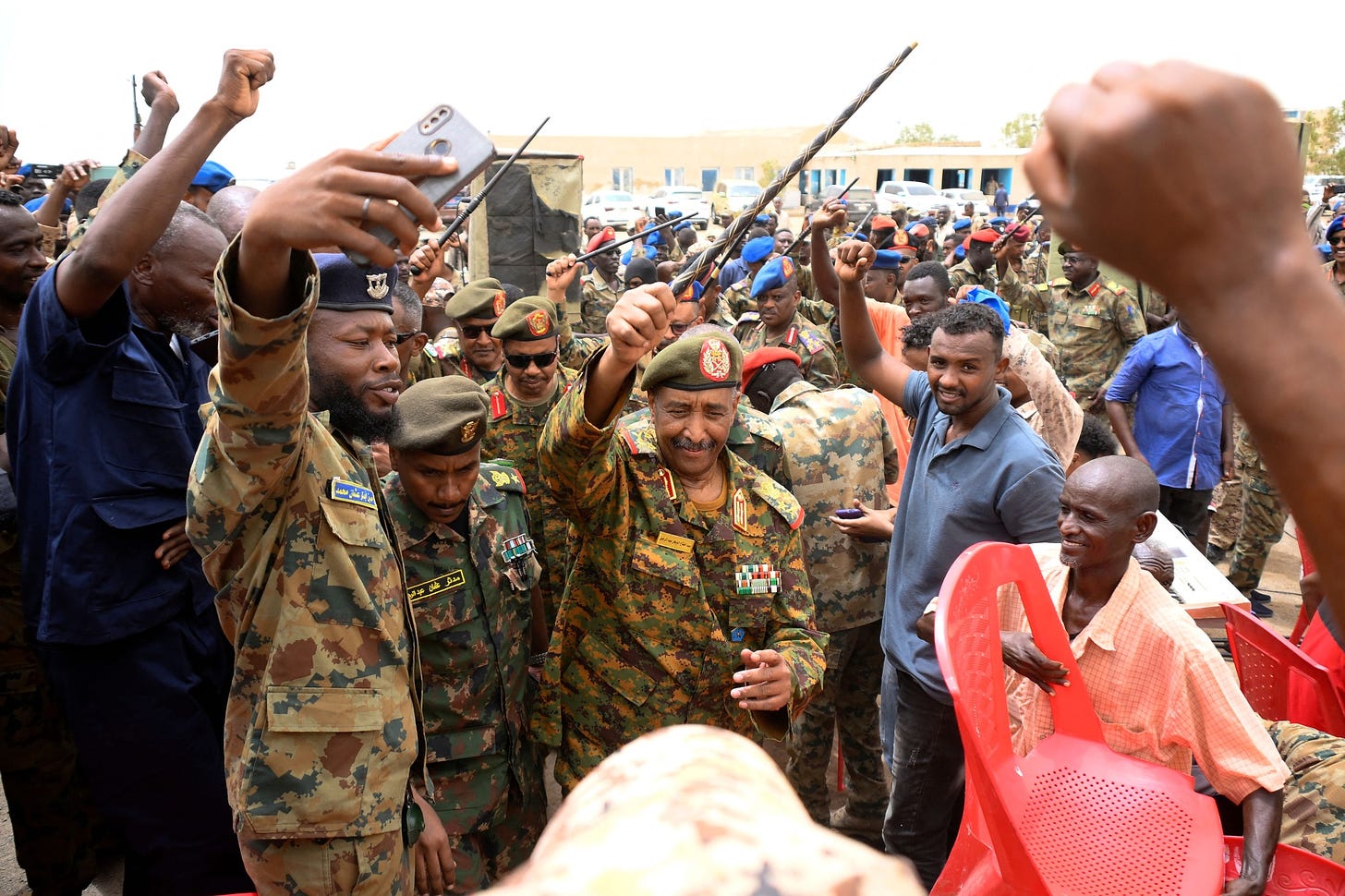
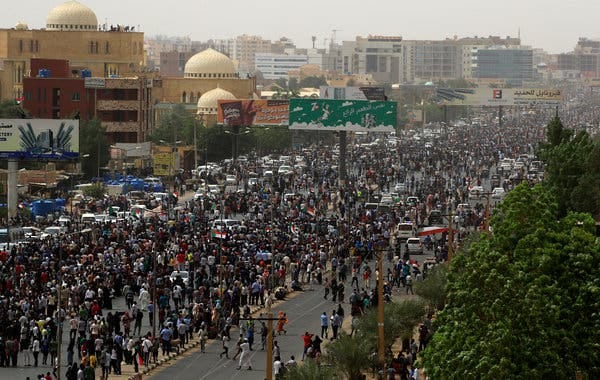
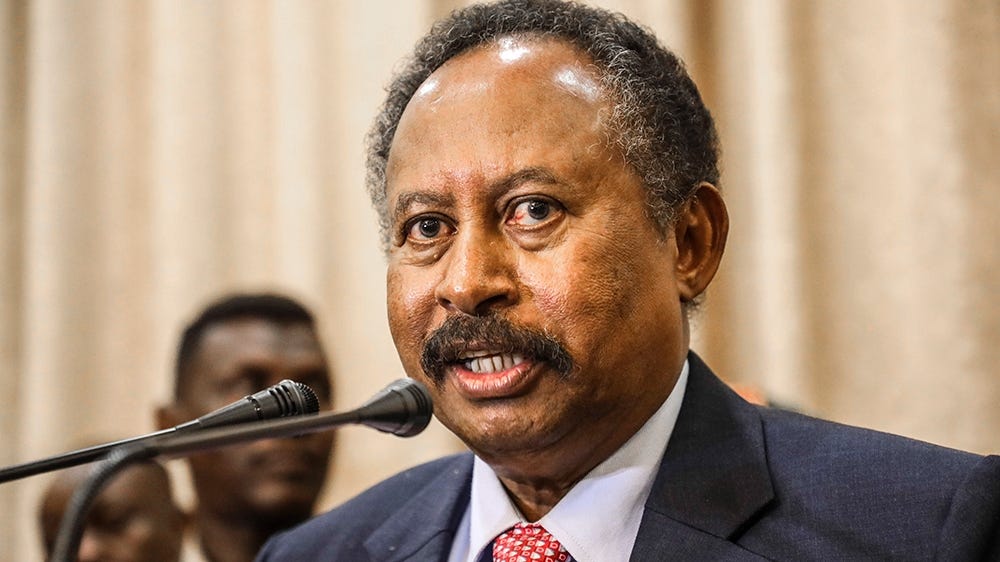
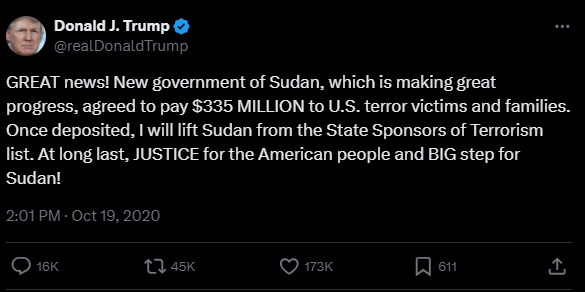
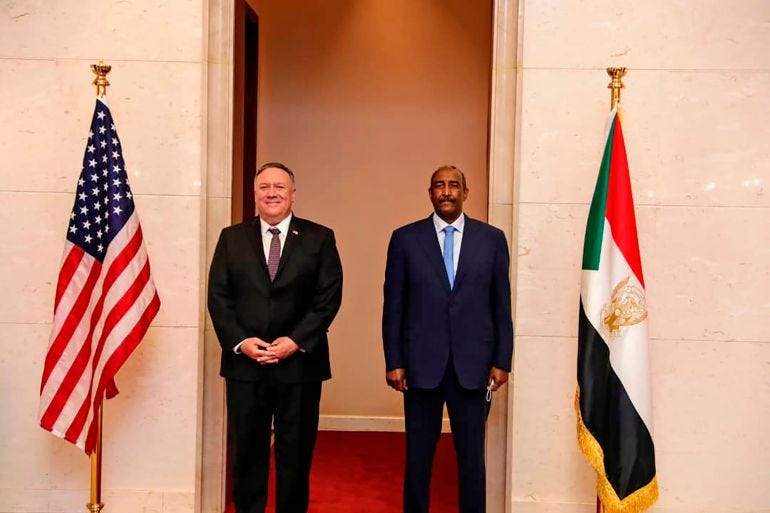
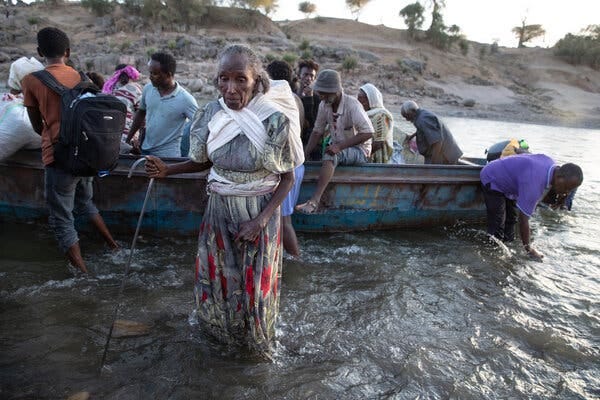
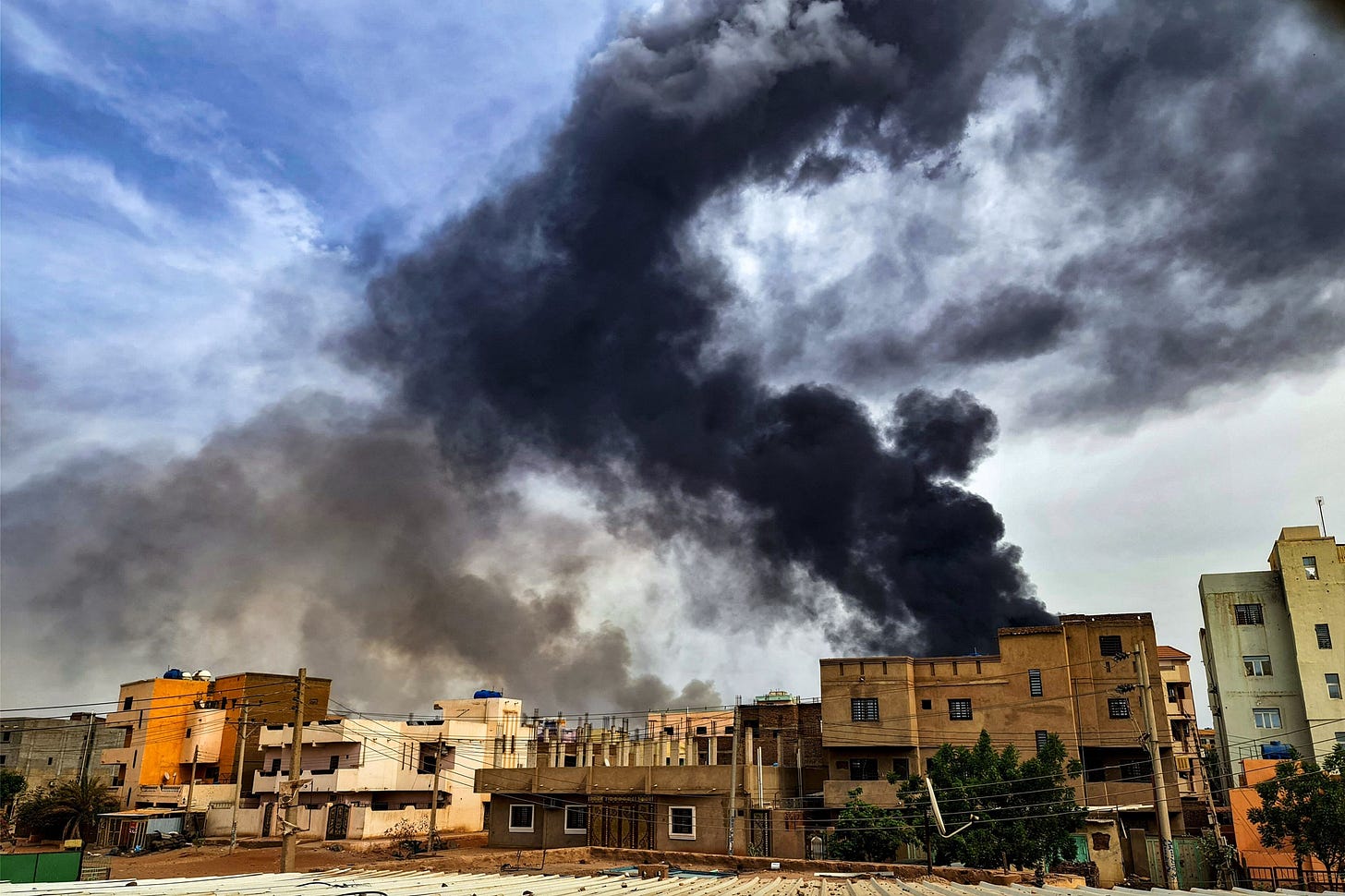
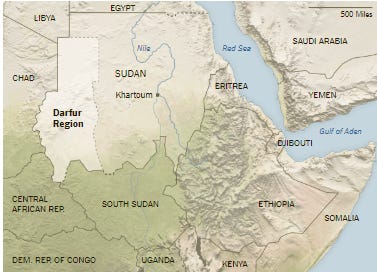
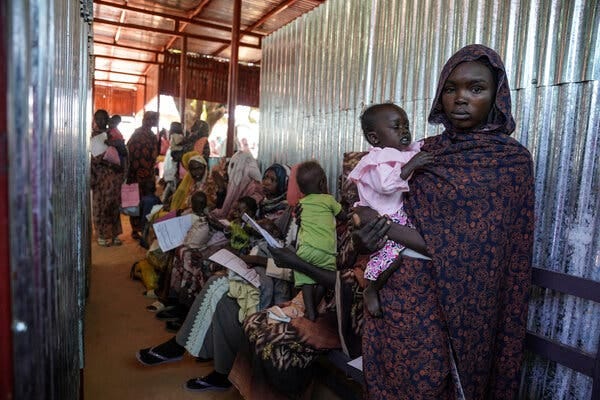
Great article. Habdok seemed promising. Shame that it was the recognition of Israel that was a lynchpin of sorts in further unrest although perhaps it would have been something else if not that.
The thought of combining countries based on economic incentives is interesting as current borders are pretty arbitrary hey.
I am optimistic about the future.
Always have wanted to learn the history of Sudan, and this was a succinct introduction, full of useful citations. Thanks and subscribed